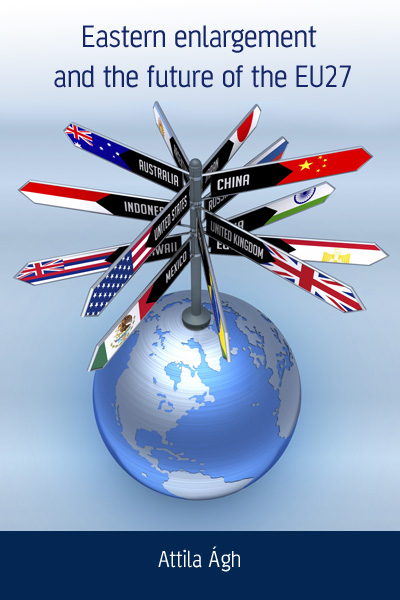Eastern enlargement and the future of EU27: EU foreign policy in a global world
- E-KÖNYV MEGJELENÉS ÉVE:
2011 - ISBN:
978-963-09-6949-9
In the early 21st century there have been basic changes in global politics generated by the global democratizations that has demonstrated at the same time the diverging EU and US foreign policies. In the 21st century the EU has appeared as a global actor with its particular profile of a civilian superpower and acted through transformative linkage politics. It means that the EU advocates not only the fusion of international relations and domestic policy as linkage politics but gives a special transformation profile to it in the form of binding conditionalities for both sides. Transformative linkage politics or - with the usual term - the enlargement policy of the EU has been one of the most influential policies that has shaped the global world and it has been the major stake and bone of contention in the global rivalry between the EU and US. The most recent result of this new policy instrument is the Eastern enlargement. EU elaborated for the Eastern enlargement “a unique model of democracy promotion through integration (…) with a particular combination of hard conditionality and soft measures” (Dimitrova and Pridham, 2004: 91). The Eastern enlargement has made the EU to a real global player. It has been a great success, which can revitalize the EU that has been suffering from a transitory identity crisis. After the Eastern enlargement the EU25 has organized a special zone as the partnership ring of Eastern and Southern neighbours, so in the nextdecades the European Neighbourhood Policy (ENP) will be one of the main directions in the European Foreign Policy (EFP). It has caused, again, some problems by testing the EU absorption capacity but the ENP has accelerated the dynamism of the EU’s doctrine on the effective multilateralism.












